Early on the morning of February 24th, Russian President Vladimir Putin announced on state television that Russia will carry out a ‘special military operation’ in eastern Ukraine.
The Midtown Times
The Midtown Times is committed to delivering accurate, timely, and comprehensive news to our readers.
The Spread of Misinformation
As the conflict in Ukraine persists, a surge of misleading claims and false information continues to flood social media platforms. These erroneous narratives range from exaggerated battlefield successes to fabricated stories of heroism and atrocity. The rapid dissemination of these falsehoods has complicated efforts to discern fact from fiction, leading to widespread confusion and misinformation among the global audience.
Consequences of False Information
The proliferation of misleading claims has significant repercussions. For one, it hampers the ability of international communities to respond effectively to the crisis. False reports can lead to misguided policy decisions, skewed public perceptions, and an overall erosion of trust in credible news sources. Additionally, these fabrications can inflame tensions and exacerbate the already dire humanitarian situation on the ground.
Social Media's Role
Social media platforms have been a major conduit for the spread of misinformation. Despite efforts by companies like Facebook, Twitter, and YouTube to curb the spread of false information, the sheer volume and speed at which these narratives propagate make it a formidable challenge. Algorithms that prioritize engagement often amplify sensationalist and misleading content, further fueling the misinformation cycle.
Efforts to Combat Misinformation
Ukraine Received British Starstreak MPADS
Ukraine has received a shipment of British Starstreak Man-Portable Air Defense Systems (MPADS), significantly bolstering its defensive capabilities amid ongoing conflicts. The advanced, shoulder-fired missile system, known for its speed and accuracy, will enhance Ukraine’s ability to protect its airspace against various aerial threats. This delivery marks a crucial step in the ongoing military support from Western allies, underscoring the international commitment to Ukraine’s sovereignty and security. The introduction of Starstreak MPADS is expected to provide a strategic advantage to Ukrainian forces, improving their operational effectiveness in the region.
When Will the Round of Negotiations Take Place?
Negotiations between Russia and Ukraine are currently a complex and evolving issue. Recently, an international peace summit, formally known as the Summit on Peace in Ukraine, was held in Switzerland on June 15-16, 2024. This summit saw participation from 92 nations and 8 international organizations, though Russia did not participate. The summit focused on key themes such as nuclear safety, food security, and the release of prisoners (Wikipedia) (United States Institute of Peace).
Additionally, discussions have been ongoing about potential peace talks, with the U.S. and EU reportedly engaging with Ukraine on this matter. Ukrainian President Volodymyr Zelenskyy has stated that Ukraine will negotiate with Russia once Ukrainian forces have pushed Russian troops back to their positions as of February 24, 2022(RadioFreeEurope/RadioLiberty). This indicates that while negotiations are being considered, their timing will depend significantly on the military situation on the ground.
Who is Giving Aid to Ukraine?
Ukraine receives aid from a broad coalition of countries and international organizations. Key contributors include:
United States: The U.S. has provided significant military, financial, and humanitarian aid to Ukraine. This includes advanced weaponry, such as HIMARS rocket systems and Javelin anti-tank missiles, as well as financial support to help maintain government functions and support the economy (United States Institute of Peace).
European Union: The EU has offered substantial financial assistance and military support to Ukraine, including sanctions on Russia and economic aid packages aimed at stabilizing the Ukrainian economy. European countries have also supplied military equipment and humanitarian aid (United States Institute of Peace).
United Kingdom: The UK has sent military equipment, including Starstreak anti-aircraft systems, and provided training to Ukrainian forces. The UK has also imposed sanctions on Russia and offered financial support(Wikipedia).
Canada: Canada has contributed military equipment, training, and financial aid to Ukraine. This includes armored vehicles, artillery, and funding for humanitarian assistance and reconstruction efforts (United States Institute of Peace).
NATO and Other Western Allies: Various NATO countries, including Germany, France, and Poland, have provided military support and training to Ukraine. NATO has also enhanced its presence in Eastern Europe as a deterrence measure (United States Institute of Peace).
International Organizations: Organizations like the International Monetary Fund (IMF) and the World Bank have provided financial aid and loans to support Ukraine’s economy and infrastructure (Wikipedia).
These contributions are part of a coordinated effort to support Ukraine in its defense against the Russian invasion and to stabilize the country economically and politically.
What are the Russian Sanctions?
Sanctions against Russia have been implemented by a wide array of countries and international organizations in response to its actions in Ukraine. These sanctions target various sectors and individuals to pressure the Russian government and its economy. Key sanctions include:
Financial Sanctions: Many Russian banks have been cut off from the SWIFT international payment system, limiting their ability to conduct international transactions. Assets of Russian banks, companies, and individuals in Western countries have been frozen (United States Institute of Peace) (RadioFreeEurope/RadioLiberty).
Trade Restrictions: There are extensive export controls on dual-use goods, technology, and military-related items to Russia. Import restrictions have also been placed on certain Russian goods, including oil, coal, and other raw materials (Wikipedia).
Energy Sector Sanctions: The U.S., EU, and other countries have imposed bans and restrictions on the import of Russian oil, gas, and coal. These sanctions aim to reduce revenue to the Russian government from its critical energy sector (United States Institute of Peace) (RadioFreeEurope/RadioLiberty).
Travel Bans and Asset Freezes: Numerous Russian government officials, oligarchs, and their families have been subject to travel bans and asset freezes. This includes key figures in the Russian government, military, and business sectors (United States Institute of Peace).
Sectoral Sanctions: Specific sectors such as aerospace, defense, and maritime have been targeted. This includes bans on the export of aircraft and parts to Russian airlines and restrictions on maritime insurance and financial services (Wikipedia).
Technology and Cyber: Restrictions on the export of high-tech products, including semiconductors and telecommunications equipment, aim to undermine Russia’s technological and military capabilities(RadioFreeEurope/RadioLiberty).
Sanctions on Russian Media: Some Russian state-owned media outlets have been restricted or banned from broadcasting in various countries to counter propaganda and disinformation (United States Institute of Peace).
These sanctions are part of a coordinated effort to isolate Russia economically and diplomatically, aiming to pressure it to cease its aggressive actions in Ukraine.
In response to the deluge of misleading claims, fact-checking organizations and reputable news outlets have intensified their efforts to verify and debunk false reports. Initiatives such as real-time fact-checking, educational campaigns on media literacy, and partnerships between tech companies and news organizations are crucial in mitigating the impact of misinformation. However, these efforts require continuous adaptation to keep pace with the evolving tactics of those spreading falsehoods.
The Importance of Critical Thinking
In this era of information overload, critical thinking and media literacy have never been more important. Individuals are encouraged to cross-check sources, verify information from multiple credible outlets, and remain skeptical of sensationalist headlines. By fostering a more informed and discerning public, the impact of misinformation can be significantly reduced, ensuring that the truth prevails amidst the chaos of conflicting narratives.
Conclusion
The ongoing Ukraine invasion highlights the critical role of accurate information in shaping public understanding and policy responses. As misleading claims continue to go viral, the combined efforts of fact-checkers, reputable news sources, social media platforms, and the public are essential in combating the spread of falsehoods. By prioritizing truth and fostering media literacy, we can navigate the complexities of the information landscape and support informed decision-making in times of crisis.
Stay tuned to The Midtown Times for further updates on this developing story.

The Midtown Times is committed to delivering accurate, timely, and comprehensive news to our readers.
What to read next...
California Government Sued | Photo Credit: Unplash.com
We live in a time of uncertainty and change. Profound social disruption, affecting how we work, how we learn or entertain ourselves, pose challenges to our social fabric as well as our physical and emotional well-being.
Investors and journalists compare today’s fashion for investing in cryptocurrencies (such as Bitcoin) to the American gold rush in the mid-19th century. Others compare the mania for digital currency to the Dutch tulip craze in the 18th century.
A person known under the pseudonym Satoshi Nakamoto organized this cryptocurrency and founded the technology for its generation and management.
Inflation has already peaked, which, according to some investors, may temporarily calm the markets.
There is a disparity when it comes to minority entrepreneurs and their access to financial capital and business opportunities.
January 18, 1:52 PM
Treasury Secretary Janet L. Yellen urged European nations on Tuesday to step up their spending to support Ukraine as Russia’s attacks on the country’s critical infrastructure showed few signs of abating.
Early on the morning of February 24th, Russian President Vladimir Putin announced on state television that Russia will carry out a ‘special military operation’ in eastern Ukraine.











